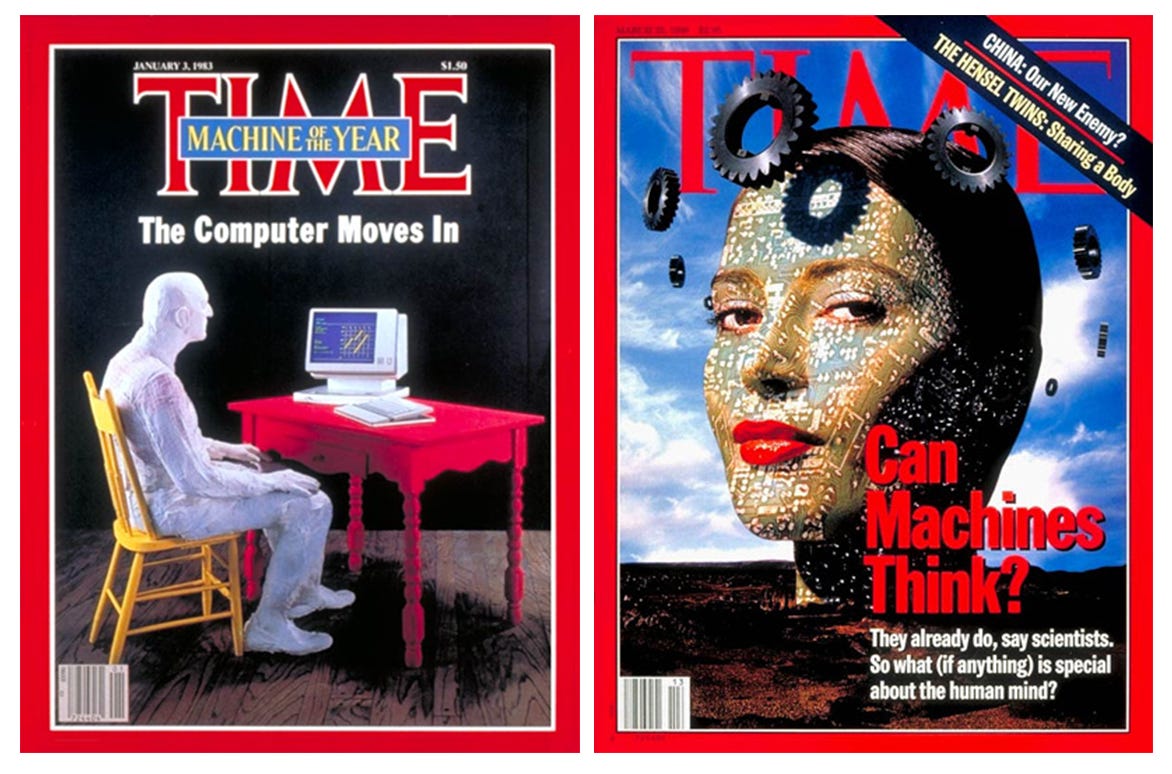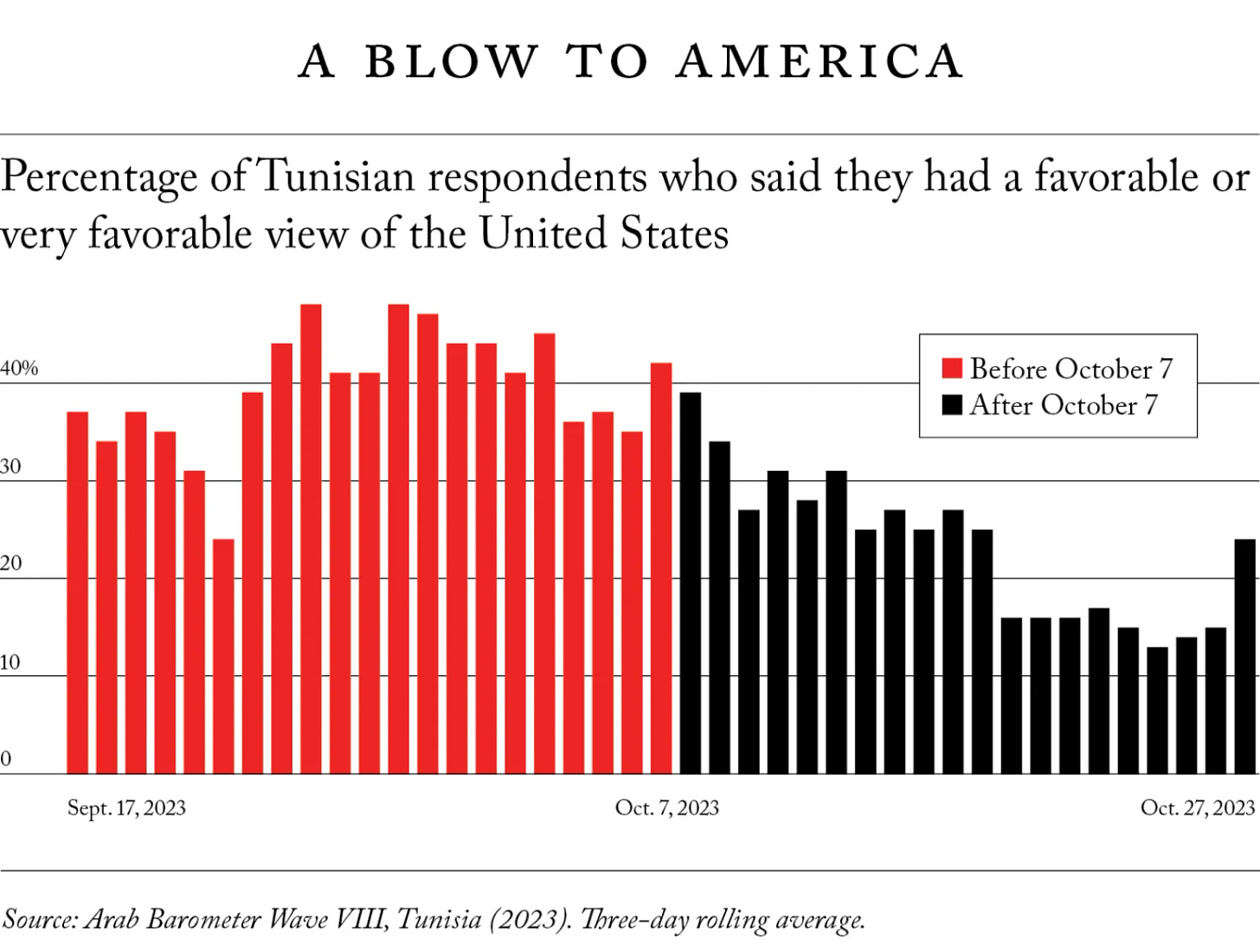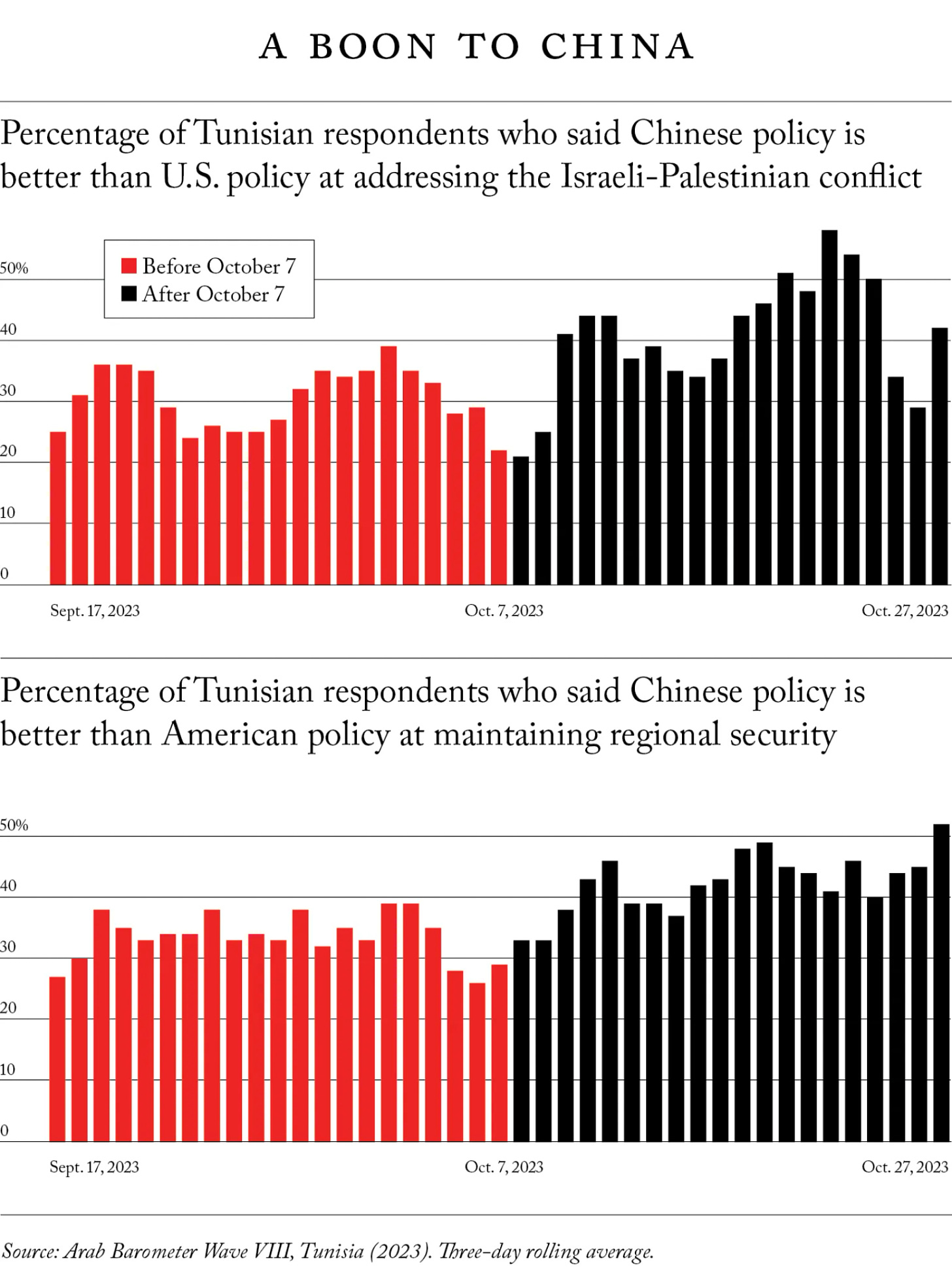NZN’s Person of the Year!
Plus: McFaul undaunted by failure, famous realist gets utopian, former Israeli officials vs. Bibi, AI vs. AI, space war simulator, and more!
Note: The NZN team’s annual year-end holiday break is nigh, so no Earthling next Friday. Which means this is our year-end issue. Accordingly, it begins with high-gravitas reflections on this past year and the year to come:
In 1927, Time Magazine named its first man of the year (Charles Lindbergh), in 1936 it named its first woman of the year (Wallis Simpson), and in 1982 it departed from the whole person-of-the-year paradigm, naming the desktop computer “machine of the year.”
This year Time had an opportunity to smash yet another paradigm with its year-end honor. It could have again chosen something digital, not organic—an AI—yet this time anointed it “person of the year.”
That would have been provocative! Attention getting! And not quite so crazy that it couldn’t be justified by an accompanying essay that, after a couple of to-be-sure paragraphs, laid out various roles that are now performed by actual people but may soon be performed by AIs: doctor, lawyer, therapist, friend, paramour, cult leader, etc. Plus there could have been a sidebar (as we used to say in the magazine business) about the Turing Test and whether today’s most powerful large language models pass it.
But no. This year Time went with Taylor Swift as person of the year. So it falls upon this periodical to seize the moment. NonZero’s person of the year is ChatGPT-4!
You may question this call, perhaps arguing that there were more seismic events in 2023 than ChatGPT-4’s debut. Like: The Hamas attacks of October 7, or the reversal of fortune that has put Russia in the driver’s seat in its war with Ukraine, or Donald Trump’s becoming odds-on-favorite to re-inhabit the White House (which would stir the Resistance into a frenzy), even as he stands a chance of instead inhabiting prison (which would stir Trumpists into a frenzy).
And yes, these things are important. But one way I’d make the case for the paramount importance of the gathering AI storm is to say that there’s a sense in which AI magnifies their importance.
My argument in a nutshell: AI, for all its promise, has the potential to do truly epic harm, and the only way to realize most of the promise while avoiding most of the harm is to regulate it wisely at the national and international level—in the sense of both actual legal regulations and more amorphous normative regulation. And that can’t happen if current levels of international conflict (including both hot and cold wars) and domestic strife persist. So long as America is bitterly divided and the world is bitterly divided, we’re in trouble.
In other words: You can add AI to the list of issues, long emphasized by this newsletter, that will pose great peril to Planet Earth unless the planet gets its act together. And getting its act together will mean subduing human strife, which in turn means subduing the psychology of tribalism, which in turn means all of us pitching in and trying to help that cause, whether via best social media practices or meditative or other spiritual practice, or whatever.
That list of planetary issues features some big challenges—climate change, the militarization of outer space, biotech (with its dual threat of epically lethal bioweapons and inadvertently engineered pandemics), and so on. But I’m convinced that, all told, AI is the biggest challenge of all, when you factor in its power, the diversity of realms in which that power will play out, and the difficulty of channeling that power wisely.
For that reason, I’m writing a book about AI. I know, I know, a year ago I said I was writing a book about cognitive empathy. But my publisher agreed with me that the AI challenge is urgent, and that the AI book I have in mind is distinctive, so now I have a two-book contract. And the AI book will go first.
So, after the new year dawns, expect to see at least as much stuff about AI in this newsletter as you’ve been seeing—and expect me to work to convince the AI skeptics among you that this is indeed a technology whose significance is rivaled by only a small number of technologies in the history of our species. And expect to see, also, NZN’s take on ways AI can enrich your life and enrich human life more broadly.
Of course, you should also expect to see, in the new year, continued NZN coverage of the whole cluster of critical subjects I’ve mentioned, ranging from climate change to biotech to cold wars to hot wars to the cognitive biases that underpin the psychology of tribalism (and hence underpin way too much of US foreign policy). Reining in that psychology, by the way, is one place where, in principle, AI could help a lot and, in principle, AI could hurt a lot.
I’m hoping to find new ways to engage readers in discussion of these issues, and even in brainstorming about them. This week we had our first ever Nonzero livestream (in collaboration with Nikita Petrov of the Psychopolitica newsletter), and the fact that we managed to field some questions from NZN subscribers without any catastrophic tech snafus has encouraged me to experiment further with that format.
We’ll also be experimenting, in the coming year, with some changes in the format of the newsletter. So please give us feedback, in the comments section or by email (nonzero.news @ gmail.com), if something rubs you the wrong way—or the right way.
Meanwhile, thanks to everyone who has sustained Team NonZero’s energy by reading the newsletter and/or listening to our podcasts (especially if you’ve given us constructive feedback about those and/or helped spread awareness of them via social media, or via rating/reviewing, or via smashing the like button, or via accosting randomly selected strangers and telling them that Armageddon will descend upon us unless they check out NonZero content).
I hope you see a coherent purpose behind our output, and I hope to find new ways to pursue that purpose in the new year. See you then! And Happy Holidays.
—RW
PS Below is the cover of the aforementioned ‘machine of the year’ issue of Time, alongside the cover of the 1996 issue that was published right after IBM’s Deep Blue AI beat the world chess champion. The reason I include that second cover, tbh, is that I wrote the cover story. I also wrote the story behind that cover story, in NZN, a couple of years ago.
Is the Israel-Hamas war eroding support for America in the Arab world and increasing support for China and Iran? If the results of a fortuitously timed study of public opinion in Tunisia is any indication, the answer is yes.
This fall the research group Arab Barometer undertook a survey in the north African country—and, as it happened, conducted half the interviews in the three weeks before Hamas’s October 7 attack and the other half in the three weeks after. The resulting graphs show no big change in the first two days after the attack, but thereafter, as Israeli airstrikes begin, a trend becomes clear.
Of course, no one Arab country is representative of the whole Arab world. But according to the authors, previous studies suggest that Tunisia “is about as close to a bellwether as one could imagine.”
All told, say the study’s authors, “every country in the survey with positive or warming relations with Israel saw its favorability ratings decline among Tunisians. The United States saw the steepest drop, but Washington’s Middle East allies that have forged ties to Israel over the last few years also saw their approval numbers go down. States that have stayed neutral, meanwhile, experienced little shift.”
In the spirit of the holidays, Harvard professor and Foreign Policy columnist Stephen Walt offers ideas for building a more peaceful world. The whole piece is worth reading (in part for the rare treat of seeing a member of the hard-nosed “realist” school of international relations use the term “utopian vision” non-pejoratively). But one idea in particular stuck out as NZN-friendly:
“[L]eaders who developed a keen sense of empathy—i.e., the ability to see things from another side’s perspective without necessarily agreeing with it—would be less likely to cross red lines by mistake, better equipped to find solutions that would leave all parties better off, and less likely to stumble into foolish wars of choice.”
We agree. However, we prefer the term “cognitive empathy” for what Walt is describing, to distinguish it from the better-known “emotional empathy” (e.g., feeling others’ pain).
Emotional empathy is more of a mixed blessing than cognitive empathy. Though it can inspire helpful behavior, it can also lead to military interventions that are begun in hopes of relieving suffering but wind up increasing it. Ferocious hawks who are agitating for military action can be surprisingly good at tugging on heartstrings.
You may have heard that Albert Einstein defined insanity as “doing the same thing over and over again and expecting different results.” Well, actually, he didn’t do that. But we thank whoever did come up with that line, both for providing a pithy characterization of US foreign policy and for providing a nice segue to our tweet of the week. The tweet comes from Michael McFaul, former US Ambassador to Russia and current exemplar of Blobthink:










